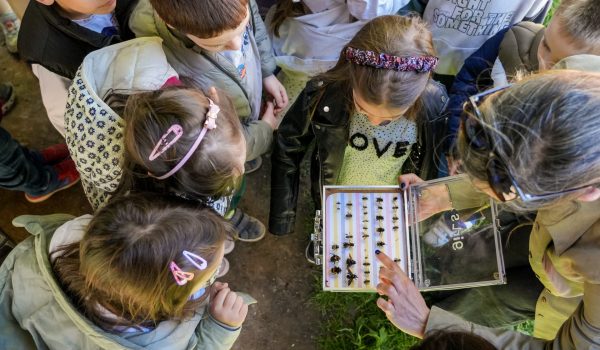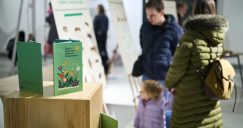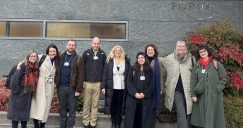Exploring Pollinators: LEVERS Workshop Held at Leptirić Kindergarten in Belgrade

- Article, Serbia, TYPE, Workshop
In a hands-on exploration of nature, children from the Leptirić Kindergarten—partners of the Center for the Promotion of Science (CPN) within the LEVERS project—recently took part in an ecological workshop held at their preschool.
The workshop was led by Dr. Jovana Dubaic, a graduate biologist specialized in environmental protection, Doctor of Ecological Sciences and professor at the Faculty of Biology in Belgrade. As an experienced educator and passionate advocate for urban biodiversity, Dr. Dubaic introduced the children to the amazing diversity of bees—not only the previously introduced honeybees, but also to the world of solitary species.
Through playful, age-appropriate activities, the preschoolers learned how to recognize different types of bees, understand their roles in nature, and appreciate their importance in maintaining healthy ecosystems. The children were especially fascinated to discover how solitary bees live and how their behavior and habitats differ from those of social species. They also learned about insect hotels—what they are, why they matter, and how one will soon be installed in their own kindergarten yard as part of a future eco-initiative.
A special part of the workshop was dedicated to learning about insect hotels—small man-made structures designed to provide safe nesting spaces for solitary bees and other beneficial insects. Children had the chance to explore what an insect hotel looks like, how it functions, and why it’s important in supporting urban biodiversity. They learned that by offering shelter to native pollinators, these hotels help maintain the balance of local ecosystems and contribute to food production and plant health. In the coming weeks, as part of future activities, an insect hotel will be installed in the kindergarten garden, turning the children’s knowledge into a real-life, hands-on conservation effort.
The workshop was further enriched by the presence of Koozmetik, a local brand of natural skincare products. In collaboration with Dr. Dubaic, Koozmetik educators guided the children through the process of creating natural cosmetics using beeswax. The children discovered how beeswax is used in products like balms and creams, what benefits it offers for the skin, and how nature and science come together in everyday items. As a special treat, each child received a gift package featuring beeswax-based products to take home.
This engaging event highlighted the powerful intersection of science, sustainability, and creativity. Through firsthand experiences and interactions with local experts, the children began developing a deeper understanding of pollinators, biodiversity, and the role they can play in protecting the natural world.
By collaborating with initiatives such as Belgrade Bees Ecology and eco-conscious producers like Koozmetik, the LEVERS project continues to foster community-based environmental education and inspire a new generation of urban nature stewards.






